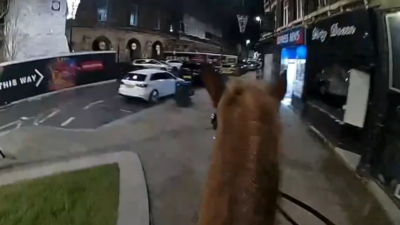So, be honest: do you love it or hate it when the clocks go back?
Planning a night out? See the live What’s On in Blackburn calendar.
This weekend, the UK officially moves from British Summer Time (BST) to Greenwich Mean Time (GMT).
At 2am on Sunday, October 26, the clocks will go back one hour — giving everyone an extra hour of sleep (or maybe just one more episode of your favourite Netflix show).
While the darker evenings might not be everyone’s cup of tea, there’s a silver lining: lighter mornings, cosier nights, and a gentle reminder that Christmas really isn’t far away.
And spare a thought for the real heroes of the weekend — from people resetting dozens of shop clocks to restoration specialists like Chris Milford, who was pictured abseiling down the walls of Warwick Castle to clean the giant clock face ahead of the big change.
The shift marks the end of British Summer Time — first introduced back in 1916 to make the best use of daylight. The idea was championed by builder William Willett, whose great-great-grandson just happens to be Coldplay’s Chris Martin.
🕰️ So what actually happens?
At 2am on Sunday morning, the time goes back to 1am.
That means Sunday, October 26, 2025, will be 25 hours long.
After that, we’re officially into winter time, with the shortest day of the year falling on Sunday, December 21, when sunset will be around 3:03pm in the UK.
🌍 A curious tradition
Only around 75 countries worldwide still change their clocks.
Most of Europe does, but many major nations like Russia, China, and most of Africa don’t bother anymore.
So whether you’re all for “the extra hour in bed” or dreading the darker evenings — just remember to adjust your clocks before you sleep on Saturday night (and check your car dashboard, because that one never seems to change automatically).







